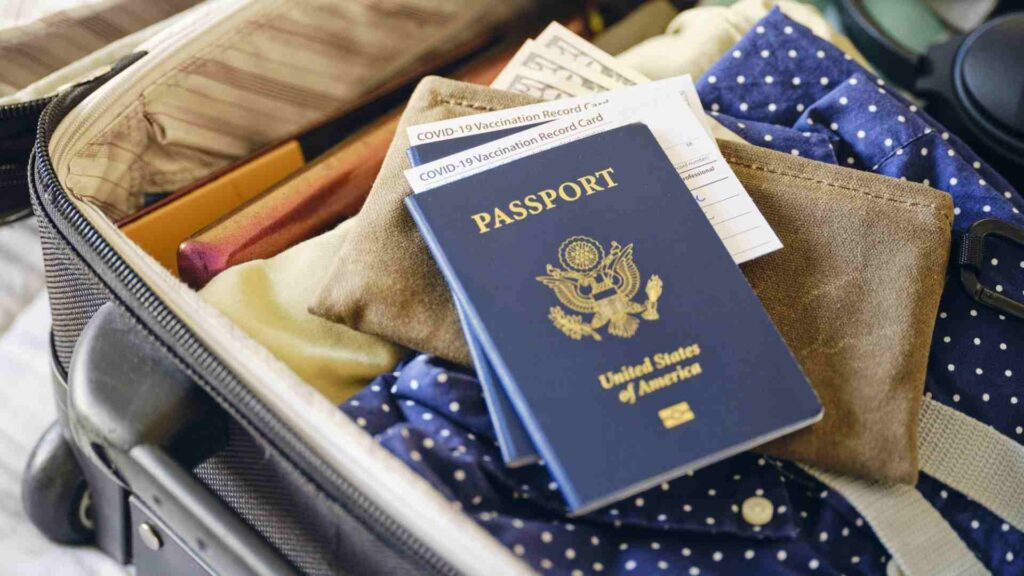Booking a flight is an exciting step in planning a trip, but what if you forget to buy travel insurance? Or maybe you weren’t sure if you needed it at the time. The good news is that you can still buy travel insurance after booking your flight. But before you do, it’s important to understand how it works, what it covers, and whether it’s worth it. In this article, we’ll explore everything you need to know about purchasing travel insurance after you’ve already booked your flight, so you can make an informed decision and travel with peace of mind.
Timing of Purchase Travel Insurance
When considering the timing of purchasing travel insurance, there are several pros and cons to weigh. Buying travel insurance early after booking your trip can be advantageous because it often provides the most comprehensive coverage. This includes benefits for pre-departure trip cancellation and may cover you for a wider range of potential issues that could arise before your trip begins. Early purchase can also be essential for coverage related to pre-existing medical conditions, as many policies require insurance to be bought within a set time after making the initial trip deposit.
On the other hand, buying insurance closer to your departure date can have its benefits too. It allows you to have a better understanding of potential risks, such as weather-related issues or health advisories, which might affect your travel plans. However, this approach has its cons; you might miss out on certain benefits that require early purchase, and if something happens between booking and deciding to buy insurance, you won’t be covered for that event.
Moreover, some travelers opt for last-minute travel insurance, which can still provide essential coverage like medical emergencies or trip interruption. Yet, this might come at a higher cost and with limited options, as insurers may view last-minute purchases as higher risk.
Can You Buy Travel Insurance After Booking a Flight?
Yes, you can buy travel insurance after booking a flight. In fact, you can purchase travel insurance up until the day before your departure. However, it’s recommended to buy travel insurance as soon as you book your flight. This is because some benefits, like pre-existing condition coverage and ‘Cancel For Any Reason’ coverage, are only available within a certain number of days (usually 14-30) from when you make your initial trip deposit.
Remember, the sooner you buy travel insurance, the sooner you’re protected against unforeseen circumstances that might affect your trip. So, while you can wait until just before your trip to buy travel insurance, it’s generally better to purchase it earlier. This way, you’re covered if you need to cancel your trip, experience a delay, or encounter other issues before your departure date.
It’s also important to note that even if you’ve already started your trip and realize you don’t have travel insurance, you can still get coverage. Some insurance companies allow travelers to buy a policy after departure. However, the coverage will only be applicable from the day of purchase onwards.
Benefits of Buying Travel Insurance Early
Purchasing travel insurance early offers several significant benefits that can provide peace of mind and financial protection for your trip. One of the primary advantages is immediate coverage. When you buy travel insurance shortly after booking your trip, you are covered for any unforeseen events that might occur before your departure, such as trip cancellations or interruptions. This ensures that your non-refundable deposits and payments are protected from the moment you make them.
Another key benefit is the coverage for pre-existing medical conditions. Many travel insurance policies offer coverage for pre-existing conditions if the insurance is purchased within a specific time frame, typically within 14-21 days of making your initial trip deposit. This can be crucial for travelers with ongoing health issues, as it ensures they are covered for any medical emergencies related to their pre-existing conditions while traveling.
Does Travel Insurance Cover Non-refundable Flights?
Buying travel insurance early also allows you to lock in the price of your policy. Insurance rates can fluctuate, and purchasing early can help you avoid potential price increases as your travel date approaches. Additionally, early purchase often qualifies you for optional upgrades, such as “Cancel for Any Reason” (CFAR) coverage, which provides greater flexibility in case you need to cancel your trip for reasons not covered by standard policies.
Furthermore, early purchase of travel insurance can provide extended trip cancellation benefits. The sooner you buy, the longer your trip cancellation coverage period will be, protecting you from a wider range of potential disruptions. This can include coverage for events such as illness, injury, natural disasters, or even job loss.
Adjustments to a Travel Insurance Policy
You can make several adjustments to your travel insurance policy to ensure it meets your needs and reflects any changes in your travel plans. Here are some common adjustments you can consider:
- Modify Coverage Levels: You can increase or decrease your coverage amounts for various aspects such as trip cancellation, trip interruption, medical expenses, and baggage loss. This allows you to tailor the policy to your specific needs and budget.
- Update Personal Information: If there are any changes in your personal details, such as your name, address, or contact information, you can update these in your policy to ensure accuracy.
- Add or Remove Travelers: If your travel party changes, you can add or remove travelers from your policy. This is particularly useful if you have friends or family members joining or leaving your trip.
- Change Travel Dates: If your travel dates change, you can adjust the coverage period of your policy to match your new itinerary. This ensures that you are covered for the entire duration of your trip.
- Update Trip Cost: If the total cost of your trip changes, you can update this information in your policy. This is important because the coverage amounts for trip cancellation and interruption are often based on the total trip cost.
- Upgrade Coverage Options: You can add optional upgrades to your policy, such as “Cancel for Any Reason” (CFAR) coverage, adventure sports coverage, or additional medical coverage. These upgrades provide extra protection and flexibility.
- Switch to an Annual Plan: If you travel frequently, you might consider switching from a single-trip policy to an annual plan. Annual plans cover multiple trips within a year and can be more cost-effective for frequent travelers.
To make these adjustments, you typically need to contact your insurance provider and request the changes. It’s important to review your policy details and make any necessary adjustments well before your departure date to ensure you have the coverage you need.
Last-Minute Coverage
For last-minute travelers who decide to purchase travel insurance after booking their flights, there are still viable options to consider. Many travel insurance companies offer policies that can be purchased up to the day before departure, providing a safety net for those short-notice trips. These last-minute policies typically cover travel delays, emergency medical treatment, and more, ensuring that travelers are not left unprotected.
Some insurers also offer post-departure travel insurance, which can be bought even after the journey has begun. While the coverage may be more limited compared to policies purchased in advance, they can still include essential benefits like trip interruption and baggage protection.
Companies like Berkshire Hathaway Travel Protection and Nationwide Insurance are known for their last-minute travel insurance options, offering plans that cater to various needs and budgets. For example, Berkshire Hathaway’s ExactCare Value plan provides trip cancellation and interruption coverage, secondary medical coverage, and emergency medical evacuation, among other benefits.
Travelers need to compare different plans and read the fine print to understand the coverage limits and exclusions. Even at the last minute, taking the time to select the right travel insurance can make a significant difference in the level of protection and support available during the trip.
When is It Too Late to Buy Travel Insurance?
It’s generally recommended to purchase travel insurance as soon as you’ve made your first trip payment or booking. However, if you’re considering a policy with time-sensitive benefits, such as coverage for pre-existing medical conditions or a “Cancel for Any Reason” (CFAR) upgrade, you should buy your insurance within a specific period after making your initial trip deposit, often within 14 to 21 days.
For most travel insurance policies, you can typically buy coverage up until the day before your departure. It’s important to note that once your trip has started, or if an incident that you want to claim for has already occurred, you won’t be able to purchase travel insurance for that particular situation.
So, while it’s not too late to buy travel insurance until the day before you leave, to get the most comprehensive coverage, it’s best to do it early, especially if you want to include benefits that have eligibility requirements tied to the purchase date.
FAQs
Q 1. What is the latest point at which you can buy travel insurance?
Ans. You can usually purchase basic travel insurance up to 24 hours before departure. However, most premium add-ons such as “cancel for any reason” coverage must be purchased within a certain number of days from when you made your initial trip payment.
Q 2. Are there any disadvantages to buying travel insurance late?
Ans. Buying insurance at the last minute can have significant downsides. Issues arising before the purchase aren’t covered. If you purchase your coverage close to departure, you generally can’t use your trip cancellation benefit. And you probably won’t be eligible for preexisting condition coverage or Cancel for Any Reason coverage.
Q 3. What are some tips for comparing different travel insurance policies?
Ans. When comparing policies, you should consider the type of coverage you need, cost, excess (how much you’ll be expected to pay out yourself before the policy will cover you), amount of medical coverage, and why pre-existing conditions aren’t included. Always compare different plans; look for different insurers as well as the plan variants available.
Conclusion
In conclusion, yes, you can buy travel insurance after booking a flight, and it’s often a good idea to do so. While buying it earlier may offer some extra benefits, getting coverage even after you’ve booked can still protect you from unexpected events. Just be sure to check the details of the policy, understand what’s covered, and make your purchase as soon as you can to avoid any gaps in protection. By being informed and acting quickly, you can travel with peace of mind, knowing you’re covered if something goes wrong.

Join Shubham, a finance enthusiast with a mission to empower readers with the knowledge and tools to achieve financial freedom. Discover smart financial advice and unlock your financial potential.


